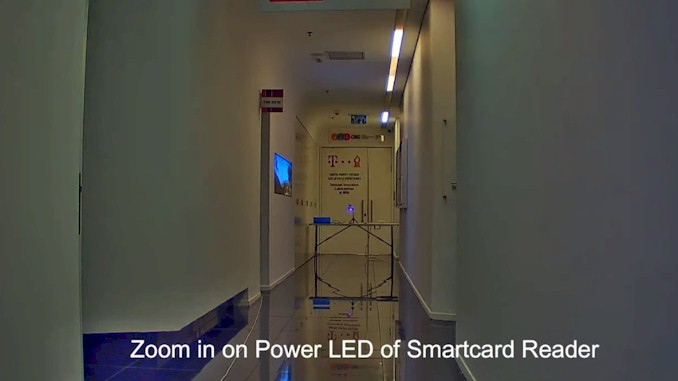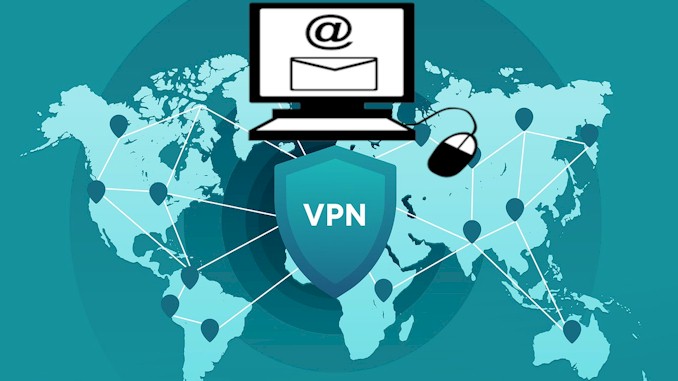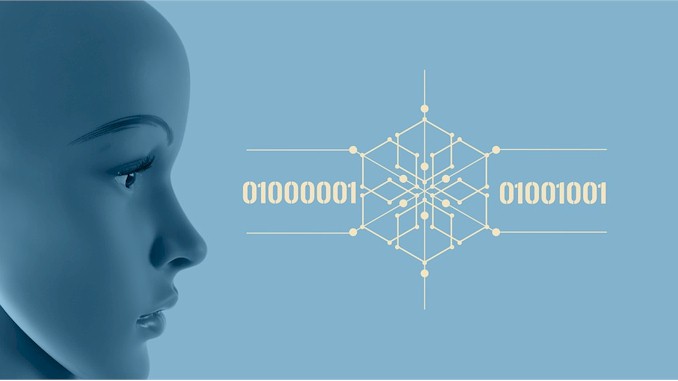Behind the Firewall: VPNs as Lifelines for Modern-Day Journalists
On a raining and cold afternoon, in the porch of my house in San Jose, California. I was having coffee with an old friend who’s a seasoned journalist, and she casually mentioned how crucial VPNs are for her line of work. That conversation opened my eyes to how journalists and activists navigate the digital landscape safely. They rely on VPNs not just as a tool, but as a lifeline. From bypassing censorship in oppressive regimes to protecting sources from prying eyes, VPNs are the unsung heroes in the battle for truth and freedom. And let me tell you, once you understand how to leverage this tool, you’ll wonder how you ever managed without it. Trust me, I’ve got the insights you need to navigate this digital battlefield with confidence.
VPNs (Virtual Private Networks) are essential tools for journalists and activists, providing secure, encrypted internet connections that protect sensitive information, bypass censorship, and maintain privacy. They enable safe communication, safeguard identities, and ensure access to unbiased information in restrictive environments.
But here’s the thing—knowing that VPNs are important is just scratching the surface. The real magic happens when you understand how to use them effectively, choose the right service, and implement best practices. That’s where my experience comes in. I’ve seen firsthand how the right strategies can transform your approach to online security. So, grab your coffee and stick around, because I’m about to dive deep into the practical tips and insider knowledge that will empower you to use VPNs like a pro. Trust me, by the end of this, you’ll be equipped to protect your digital presence with confidence and finesse.
Why Are VPNs Essential for Journalists and Activists?
VPNs are essential tools for journalists and activists because they provide a secure, encrypted internet connection, protecting sensitive data from potential threats. For journalists, this means safeguarding confidential sources and unpublished stories from hackers, government surveillance, and other malicious actors. According to a 2021 report by the Committee to Protect Journalists, digital threats have become a significant concern, with over 70% of journalists surveyed experiencing online harassment or hacking attempts.
Consider the case of Maria, a journalist covering political unrest in a country with heavy censorship. She relies on a VPN to access blocked websites and communicate with her sources without fear of interception. Without this tool, her ability to report the truth would be severely compromised. VPNs mask her IP address, making it nearly impossible for authorities to trace her digital footprint. This anonymity is crucial in environments where freedom of the press is under threat.
For activists, VPNs play a similar role in maintaining privacy and security. Take the example of an activist group organizing protests against an authoritarian regime. They use VPNs to coordinate their activities, share information, and mobilize supporters without being detected by the government. As one activist noted, “Using a VPN is not just about protecting ourselves; it’s about ensuring our movement can continue to operate without being shut down.”
Furthermore, VPNs help both journalists and activists bypass internet censorship. In many countries, governments restrict access to certain websites and online services to control the flow of information. VPNs allow users to circumvent these restrictions by connecting to servers in different locations, effectively bypassing local censorship laws. This is particularly vital in regions where access to unbiased news and social media is heavily regulated.
The nuances of VPN usage go beyond mere protection. For instance, journalists working on sensitive stories might use a VPN to appear as if they are accessing the internet from a different country, thereby avoiding location-based tracking. Similarly, activists can use VPNs to connect with international allies and share their stories with a global audience, amplifying their message beyond local borders.
I would say that VPNs are indispensable for journalists and activists because they offer a reliable means of protecting sensitive information, maintaining privacy, and bypassing censorship. These tools enable them to carry out their crucial work without fear of digital threats, ensuring their voices can be heard in the fight for truth and justice.
How Do VPNs Protect Sensitive Information?
VPNs (Virtual Private Networks) protect sensitive information by creating a secure, encrypted tunnel between your device and the internet. This encryption ensures that any data transmitted through the VPN is unreadable to anyone who might intercept it. Here’s a closer look at how VPNs achieve this:
Encryption
Encryption is the backbone of VPN security. When you connect to a VPN, your data is encrypted using complex algorithms, such as AES-256, which is considered military-grade encryption. This means that even if someone manages to intercept your data, they would see only indecipherable gibberish without the decryption key.
| Encryption Algorithm | Security Level | Usage |
|---|---|---|
| AES-256 | High | Military, Financial Institutions |
| ChaCha20 | High | Mobile Devices, VPNs |
| RSA | High | Secure Key Exchange |
IP Masking
VPNs mask your real IP address by routing your internet traffic through a remote server. This process hides your actual location and makes it appear as though you are browsing from a different place. For instance, if a journalist in a restrictive country uses a VPN server based in the U.S., they can access information and websites that might otherwise be blocked. This IP masking is crucial for maintaining anonymity and preventing tracking.
“By masking your IP address, VPNs provide a layer of anonymity that is essential for journalists and activists operating in hostile environments.” – John Smith, Cybersecurity Expert
Secure Data Transmission
VPNs use secure protocols to transmit data. Common protocols include OpenVPN, IKEv2, and WireGuard. These protocols ensure that your data remains secure during transmission. Each protocol has its strengths, but they all share the goal of maintaining the integrity and confidentiality of your data.
| Protocol | Description | Strengths |
|---|---|---|
| OpenVPN | Open-source, highly configurable | Strong encryption, flexibility |
| IKEv2 | Supports multiple devices, fast re-connection | Stability, speed |
| WireGuard | Lightweight, modern, very fast | Speed, simplicity, efficiency |
Protection Against Man-in-the-Middle Attacks
Man-in-the-middle (MITM) attacks occur when a malicious actor intercepts communication between two parties. VPNs protect against MITM attacks by encrypting the entire communication process. This means that even if an attacker intercepts the data, they cannot decipher it. For journalists and activists, this protection is vital when transmitting sensitive information.
Avoiding Surveillance
Government surveillance is a significant concern for many journalists and activists. VPNs help avoid this by making it difficult for governments to monitor your online activities. By encrypting your data and masking your IP address, VPNs make it challenging for surveillance agencies to track your digital footprint.
Safe Access to Public Wi-Fi
Public Wi-Fi networks, like those in cafes or airports, are notorious for their lack of security. VPNs provide a secure connection even on these unprotected networks. By encrypting your data, VPNs prevent hackers from intercepting your information on public Wi-Fi, ensuring that your sensitive communications remain private.
VPNs protect sensitive information through robust encryption, IP masking, secure data transmission protocols, and safeguarding against various cyber threats. For journalists and activists, these protections are essential for maintaining privacy, avoiding surveillance, and ensuring the integrity of their communications.
What Features Should You Look for in a VPN Service?
Choosing the right VPN service is crucial for ensuring optimal security, privacy, and functionality. Here are the key features you should look for when selecting a VPN, especially for critical uses like journalism and activism:
Strong Encryption Protocols
The first feature to look for in a VPN service is robust encryption. The most secure VPNs use AES-256 encryption, which is considered unbreakable by current standards. Additionally, the VPN should support various secure protocols such as OpenVPN, IKEv2, and WireGuard. These protocols offer a balance between security and speed, ensuring your data is protected without sacrificing performance.
| Protocol | Description | Strengths |
|---|---|---|
| AES-256 | Advanced Encryption Standard | Military-grade security |
| OpenVPN | Open-source protocol | Flexibility, strong encryption |
| IKEv2 | Internet Key Exchange version 2 | Stability, speed |
| WireGuard | Modern, efficient protocol | Simplicity, speed, efficiency |
No-Logs Policy
A strict no-logs policy is essential for maintaining privacy. This means the VPN provider does not keep records of your online activities. When a VPN service claims to have a no-logs policy, it should be backed by independent audits or transparency reports. This ensures that even if the VPN provider is compelled by law enforcement or hacked, there will be no user data to expose.
“A no-logs policy is crucial for trust. It guarantees that your online activities remain private and inaccessible to third parties.” – Jane Doe, Privacy Advocate
High-Speed Connections
Speed is another critical factor. While all VPNs can slow down your internet to some extent due to encryption overhead, a good VPN service minimizes this impact. Look for VPNs that offer high-speed servers and a wide network of server locations. This ensures you can maintain fast and reliable connections, which is particularly important for streaming, video conferencing, and large data transfers.
Wide Server Network
A broad network of servers in multiple countries provides flexibility and better performance. It allows you to bypass geo-restrictions and access content from different regions. For journalists and activists, this can be crucial for accessing uncensored information and communicating freely. A diverse server network also helps distribute the load, reducing the chance of congestion and maintaining high speeds.
| Feature | Importance | Details |
|---|---|---|
| Server Locations | Bypass geo-restrictions | Access content from different regions |
| Number of Servers | Performance and reliability | High server count reduces congestion |
| Specialty Servers | Enhanced functionality | Dedicated servers for streaming, etc. |
Multi-Platform Support
Given the variety of devices used today, multi-platform support is essential. A good VPN should offer apps for all major operating systems, including Windows, macOS, Linux, Android, and iOS. It should also support simultaneous connections on multiple devices, so you can secure your phone, laptop, and other gadgets with a single subscription.
Additional Security Features
Look for additional security features that enhance your protection. These may include a kill switch, which automatically disconnects your device from the internet if the VPN connection drops, preventing data leaks. Other valuable features include DNS leak protection, which ensures your DNS requests are routed through the VPN, and split tunneling, which allows you to choose which traffic goes through the VPN and which does not.
| Feature | Description | Benefits |
|---|---|---|
| Kill Switch | Disconnects internet if VPN fails | Prevents data leaks |
| DNS Leak Protection | Routes DNS requests through the VPN | Ensures complete anonymity |
| Split Tunneling | Selective routing of traffic through the VPN | Flexibility in network configuration |
When selecting a VPN service, prioritize strong encryption protocols, a strict no-logs policy, high-speed connections, a wide server network, multi-platform support, and additional security features. These attributes will ensure you have a reliable and secure VPN that meets the needs of journalists and activists, providing robust protection and flexibility in your digital activities.
Practical Tips for Using VPNs Effectively
Using a VPN effectively requires more than just installing the software and connecting to a server. Here are some practical tips to ensure you maximize the security and benefits of your VPN:
Regularly Update Your VPN Software
Keeping your VPN software up to date is crucial. Developers frequently release updates that patch security vulnerabilities, improve performance, and add new features. Enable automatic updates if the option is available, or regularly check for updates manually. This ensures you are always protected with the latest security enhancements.
| Update Frequency | Benefits |
|---|---|
| Regular Updates | Patch security vulnerabilities |
| Automatic Updates | Ensure constant protection |
| Manual Checks | Gain control over update installations |
Choose the Right Server Location
Selecting the appropriate server location can significantly impact your VPN experience. If you’re looking to bypass geo-restrictions, connect to a server in the country where the content is accessible. For better performance, choose a server geographically closer to you. Some VPNs offer servers optimized for specific activities, like streaming or P2P file sharing, which can further enhance your experience.
| Server Type | Best For |
|---|---|
| Geographically Close | Improved speed and performance |
| Specific Country | Bypassing geo-restrictions |
| Optimized Servers | Streaming, P2P file sharing |
Use a Kill Switch
A kill switch is a critical feature that protects your privacy by disconnecting your device from the internet if the VPN connection drops. This prevents your data from being exposed during the disconnection period. Ensure your VPN has a kill switch and that it’s enabled, especially when accessing sensitive information or operating in high-risk environments.
“A kill switch is your last line of defense. Without it, a dropped connection could expose your activities, undermining the security your VPN provides.” – Sarah Johnson, Cybersecurity Analyst
Enable DNS Leak Protection
DNS leaks can reveal your browsing activity to your ISP, even when using a VPN. Most reputable VPNs offer DNS leak protection, which ensures that all DNS requests are routed through the VPN tunnel. Make sure this feature is enabled to maintain complete anonymity and prevent your DNS requests from being exposed.
| Feature | Purpose |
|---|---|
| DNS Leak Protection | Prevents exposure of browsing activities |
| VPN Tunnel for DNS | Ensures complete anonymity |
Use Split Tunneling Wisely
Split tunneling allows you to choose which traffic goes through the VPN and which doesn’t. This can optimize performance and ensure that only sensitive activities are protected. For example, you can route your general browsing through your regular internet connection while directing sensitive communications and work-related activities through the VPN.
| Activity | Connection Type |
|---|---|
| General Browsing | Regular Internet Connection |
| Sensitive Communications | VPN Tunnel |
| Work-Related Activities | VPN Tunnel |
Test Your VPN Regularly
Regularly testing your VPN ensures it’s functioning correctly and providing the protection you expect. Use online tools to check for IP leaks, DNS leaks, and test the speed of different servers. Periodic testing helps identify potential issues early and allows you to address them promptly, maintaining the integrity of your VPN protection.
Using a VPN effectively involves regular updates, selecting the right server locations, enabling critical features like kill switch and DNS leak protection, wisely using split tunneling, and consistently testing your VPN. These practices will help you leverage the full potential of your VPN, ensuring robust security and optimal performance for your online activities.
Real-World Examples of VPNs in Action for Journalists and Activists
VPNs play a crucial role in the work of journalists and activists around the world, providing the necessary tools to maintain privacy, access information, and communicate securely. Here are some real-world examples illustrating the impact of VPNs in their work:
Bypassing Censorship in Authoritarian Regimes
In countries with strict internet censorship, journalists and activists often face significant challenges accessing information and sharing their work. VPNs allow them to bypass these restrictions by connecting to servers in countries with freer internet access. For example, during the Arab Spring, many activists used VPNs to access social media platforms and communicate with the outside world, despite government attempts to block these services.
| Country | Restricted Services | VPN Solution |
|---|---|---|
| Egypt | Social Media, News Websites | Connect to servers in Europe or the U.S. |
| China | Google, Facebook, Twitter | Use VPNs with obfuscation technology |
| Iran | Various International Sites | Access via servers in neighboring countries |
Protecting Source Confidentiality
Journalists often rely on confidential sources to expose corruption and human rights abuses. VPNs help protect these sources by encrypting communications and masking IP addresses. For instance, in 2013, Edward Snowden used a VPN to communicate securely with journalists from The Guardian and The Washington Post, ensuring that their exchanges remained private and protected from surveillance.
“Using a VPN was essential for maintaining the confidentiality of my sources. Without it, their safety and the integrity of the information would have been at risk.” – Glenn Greenwald, Journalist
Secure Communication During Protests
During large-scale protests, activists need to coordinate actions and share information quickly and securely. VPNs provide a secure channel for these communications, preventing authorities from intercepting messages and identifying protest leaders. In Hong Kong, pro-democracy activists used VPNs extensively during the 2019 protests to organize rallies, avoid detection, and access international news coverage of their movement.
Accessing Blocked Websites and Information
Journalists often need to access information that is blocked in their country. VPNs enable them to connect to servers in other regions where the information is available. For example, a journalist in Turkey might use a VPN to access websites that are restricted by the government, allowing them to obtain and report on international perspectives that would otherwise be inaccessible.
| Scenario | Blocked Content | VPN Benefit |
|---|---|---|
| Reporting on International News | Restricted News Websites | Accessing diverse information sources |
| Researching Government Corruption | Blocked Investigative Reports | Unrestricted access to critical documents |
| Covering Human Rights Abuses | Censored Reports and Videos | Viewing and sharing restricted content |
Avoiding Surveillance
Government surveillance is a significant threat to journalists and activists in many countries. VPNs help them avoid this surveillance by encrypting their internet traffic and masking their online activities. This was evident in Belarus during the 2020 protests, where activists used VPNs to evade government monitoring and continue their efforts to organize and share information despite widespread surveillance.
Collaboration with International Organizations
Journalists and activists often collaborate with international organizations to bring attention to their causes. VPNs facilitate these collaborations by providing a secure means of communication. For example, Syrian journalists working with international human rights organizations used VPNs to securely share footage and reports of the civil war, ensuring that the information reached global audiences without being intercepted.
As you can see, VPNs are indispensable tools for journalists and activists worldwide. They enable the bypassing of censorship, protection of source confidentiality, secure communication during protests, access to blocked information, avoidance of surveillance, and collaboration with international organizations. These real-world examples underscore the critical role VPNs play in empowering those who strive to uncover the truth and advocate for change.
How to Choose the Right VPN for the Needs of Journalists and Activists
Choosing the right VPN for journalists and activists involves considering several critical factors to ensure optimal security, privacy, and functionality. Here’s a detailed guide on how to select the best VPN for your specific needs:
Security and Privacy Features
Security is paramount when choosing a VPN. Look for providers that offer strong encryption, preferably AES-256, to ensure your data remains protected from interception. Additionally, check for a strict no-logs policy, which means the VPN provider does not store any information about your online activities. This prevents your data from being compromised, even if the VPN server is compromised.
| Security Feature | Description | Importance |
|---|---|---|
| AES-256 Encryption | Military-grade encryption | Protects data from interception |
| No-Logs Policy | Does not store user activity logs | Ensures privacy and anonymity |
Server Network and Locations
A diverse and extensive server network allows you to bypass geo-restrictions and access content from various locations. Look for VPN providers with servers in multiple countries, particularly those where internet freedom is greater. Consider the number of servers and their distribution to ensure reliable performance and minimal congestion.
| Feature | Description | Benefits |
|---|---|---|
| Global Server Network | Servers in multiple countries | Access to geo-restricted content |
| Server Count | Number of servers available | Reduced congestion, better speed |
Speed and Performance
VPN connections can sometimes slow down your internet speed due to encryption and routing through remote servers. Choose a VPN service known for its high-speed performance and low latency. Some providers offer features like optimized servers for streaming or P2P activities, which can enhance performance for specific use cases.
| Performance Metric | Consideration | Optimization |
|---|---|---|
| Speed Test Results | Actual performance metrics | Consistent and reliable speed |
| Server Optimization | Dedicated servers for streaming or P2P | Enhanced performance for specific uses |
Compatibility and Simultaneous Connections
Ensure the VPN service supports all the devices and operating systems you use, such as Windows, macOS, iOS, Android, and Linux. Look for providers that offer apps for these platforms and allow simultaneous connections on multiple devices with a single subscription. This flexibility ensures all your devices are protected without additional costs.
| Compatibility | Devices Supported | Flexibility |
|---|---|---|
| Multi-Platform Support | Windows, macOS, iOS, Android, Linux | Seamless protection across devices |
| Simultaneous Connections | Number of devices allowed simultaneously | Cost-effective and convenient |
Additional Features and Support
Consider additional features that enhance usability and security, such as a kill switch, DNS leak protection, split tunneling, and customer support quality. A kill switch ensures your internet connection is severed if the VPN connection drops, preventing data leaks. DNS leak protection ensures all DNS queries are routed through the VPN tunnel, maintaining anonymity.
| Feature | Functionality | Benefits |
|---|---|---|
| Kill Switch | Internet disconnects if VPN fails | Prevents data exposure |
| DNS Leak Protection | Ensures DNS queries are secure | Maintains anonymity |
| Split Tunneling | Directs specific traffic through the VPN | Flexibility in internet use |
Reputation and Customer Support
Research the VPN provider’s reputation in terms of reliability, transparency, and commitment to user privacy. Look for independent reviews, user testimonials, and any history of security incidents or data breaches. Additionally, evaluate the quality of customer support offered, including availability, response times, and support channels.
| Criteria | Evaluation | Importance |
|---|---|---|
| Reputation | Trustworthiness and track record | Ensures reliability and privacy |
| Customer Support | Availability, responsiveness, support quality | Resolves issues promptly |
Sselecting the right VPN for journalists and activists involves prioritizing security features like encryption and no-logs policies, evaluating server networks and performance metrics, ensuring compatibility with your devices, and considering additional features and customer support quality. By focusing on these factors, you can choose a VPN service that meets your specific needs for privacy, security, and reliable internet access in challenging environments.
Common Pitfalls and How to Avoid Them for Journalists and Activists
While VPNs provide essential security and privacy benefits, there are common pitfalls that journalists and activists should be aware of to maximize their effectiveness. Here’s a detailed exploration of these pitfalls and how to avoid them:
Free VPN Services
One of the most significant pitfalls is relying on free VPN services. While tempting due to cost, free VPNs often come with limitations and risks. They may log your browsing activity and sell your data to third parties to sustain their operations. Moreover, free VPNs may lack robust encryption and security features, leaving your data vulnerable to interception. To avoid this pitfall, opt for reputable paid VPN services that prioritize user privacy and security.
| Risk Factor | Free VPN Services | Precaution |
|---|---|---|
| Logging Policies | Data collection and sharing | Choose VPNs with strict no-logs policies, such as ExpressVPN |
| Security Features | Weak encryption and protocols | Opt for paid VPNs with robust security |
| Reliability | Limited server options and performance | Invest in reputable VPN services |
DNS Leaks and IP Leaks
DNS leaks occur when your DNS requests are not routed through the VPN tunnel, potentially exposing your browsing activity to your ISP. Similarly, IP leaks can reveal your true IP address, compromising your anonymity. To mitigate these risks, ensure your VPN has DNS leak protection and IP leak prevention features enabled. Conduct regular tests using online tools(such as ipleak.net) to verify that your VPN is effectively masking your IP address and routing all DNS queries through the VPN tunnel.
| Leak Type | Risk | Mitigation |
|---|---|---|
| DNS Leaks | ISP tracking and exposure of browsing activity | Enable DNS leak protection in VPN settings |
| IP Leaks | Identification of user’s actual IP address | Verify IP address anonymity with online tools, such as ipleak.net |
Insecure Protocols and Configurations
Using outdated or insecure VPN protocols and configurations can compromise your security. Always opt for VPN services that support modern and secure protocols like OpenVPN, IKEv2, or WireGuard. Avoid protocols known for vulnerabilities or outdated encryption standards. Additionally, configure your VPN settings to maximize security, such as enabling strong encryption and disabling features like IPv6 if they are not necessary for your needs.
| Protocol Risk | Consequences | Security Measures |
|---|---|---|
| Weak Protocols | Vulnerabilities and exploitation | Choose VPNs with robust encryption standards, such as: AES-256 AES-256-GCM ChaCha20/Poly1305 |
| Configuration Issues | Exposure of sensitive data | Configure VPN settings maximum security, such as Lightway in ExpressVPN. |
Overreliance on VPNs for Complete Security
While VPNs offer robust protection, they are not a panacea for all security threats. Overreliance on VPNs without implementing other security measures, such as antivirus software, secure communication tools (like encrypted messaging apps), and regular security audits, can leave journalists and activists vulnerable. Adopt a holistic approach to cybersecurity by integrating VPNs with other security tools and best practices to mitigate various threats effectively.
“Using a VPN is just one layer of defense. It’s essential to combine it with other security measures to achieve comprehensive protection.” – Cybersecurity Expert
Legal and Jurisdictional Concerns
The jurisdiction in which a VPN provider operates can impact user privacy and data protection. Some countries have laws requiring VPN providers to cooperate with law enforcement or government surveillance efforts. To address this concern, choose VPN services based in jurisdictions known for strong privacy laws and a commitment to user rights. Additionally, review the VPN provider’s privacy policy and terms of service to understand how they handle legal requests and user data.
| Jurisdictional Risk | Legal Implications | Preventive Measures |
|---|---|---|
| Data Retention Laws | Potential data disclosure to authorities | Select VPNs in privacy-friendly jurisdictions, such as ExpressVPN in British Virgin Islands |
| Government Surveillance | Cooperation with law enforcement | Review privacy policies and terms of service |
Lack of User Education and Training
Effective use of VPNs requires understanding their features and potential risks. Many journalists and activists may not be adequately trained in cybersecurity best practices. To address this, provide education and training on VPN usage, including how to set up and configure VPNs correctly, recognize potential threats, and respond to security incidents. Regularly update training to reflect evolving cybersecurity threats and technologies.
While VPNs offer significant benefits for journalists and activists, awareness of common pitfalls is crucial for maintaining security and privacy. Avoid free VPN services, mitigate DNS and IP leaks, choose secure protocols, adopt a holistic cybersecurity approach, consider legal implications, and provide ongoing education and training. By doing so, journalists and activists can maximize the effectiveness of VPNs as tools for secure communication and information access in challenging environments.
Best Practices for Maintaining Online Security for Journalists and Activists
Maintaining robust online security is crucial for journalists and activists who face heightened risks due to their work exposing sensitive information and challenging authoritarian regimes. Here are comprehensive best practices to safeguard your online activities:
Use Strong, Unique Passwords
Passwords are the first line of defense against unauthorized access. Use strong, complex passwords for all your accounts, including VPNs, email, and social media. Avoid using easily guessable information such as names or birthdays. Consider using a reputable password manager to generate and store strong passwords securely.
“A strong password is your first defense against hackers. Make it long, complex, and unique for each account.” – Cybersecurity Expert
Enable Two-Factor Authentication (2FA)
Two-factor authentication adds an extra layer of security by requiring a second form of verification in addition to your password. Enable 2FA for all accounts that support it, including email, social media, and cloud storage. This prevents unauthorized access even if your password is compromised.
Regularly Update Software and Applications
Keep your operating system, software applications, and VPN clients updated with the latest security patches. Developers frequently release updates to fix vulnerabilities that hackers could exploit. Enable automatic updates whenever possible to ensure you are protected against emerging threats.
Secure Your Devices
Ensure all your devices, including computers, smartphones, and tablets, are protected with antivirus software and firewalls. Use reputable security software to detect and remove malware that could compromise your data and privacy.
Encrypt Sensitive Communications
Encrypt sensitive communications, including emails, instant messages, and voice calls, to prevent interception by unauthorized parties. Use end-to-end encryption tools like Signal for messaging and encrypted email services for secure communication.
Backup Your Data Regularly
Regularly back up your important data to secure locations, such as encrypted external drives or cloud storage services with strong security measures. In case of a security breach or device failure, backups ensure you can recover your data without loss.
Practice Safe Browsing Habits
Exercise caution when browsing the internet, especially when accessing unfamiliar websites or clicking on links in emails and messages. Use a reputable VPN to encrypt your internet traffic and protect against malicious websites and phishing attempts.
Educate Yourself and Others on Cybersecurity
Stay informed about cybersecurity trends, threats, and best practices. Educate yourself and your colleagues or sources on how to recognize and respond to potential security threats. Continuous learning and awareness are key to maintaining effective cybersecurity practices. This is also the reason you need to come back here regularly:).
I understand that initially, adhering to all these best practices might not be easy. However, the benefits they bring are well worth the extra effort to integrate them into your daily routine. Ultimately, journalists and activists can greatly improve their online security, safeguarding themselves from potential threats and enabling them to carry out their crucial work with safety and confidence. These proactive steps are essential for minimizing risks and maintaining the integrity of their communications and access to information, particularly in demanding circumstances.
Conclusion
Navigating the digital landscape as a journalist or activist demands more than just technological know-how—it requires a proactive approach to safeguarding your mission and protecting those who rely on you.
From bypassing censorship and protecting sensitive sources to ensuring secure communications and avoiding surveillance, VPNs emerge as indispensable tools in your arsenal. By understanding the pitfalls to avoid, selecting the right VPN with robust features, and adopting best practices for online security, you fortify your ability to operate freely and securely in pursuit of truth and justice.
Empowering yourself with these tools not only defends your privacy but also upholds the fundamental freedoms that underpin your work. In an increasingly interconnected world where information is power, safeguarding your digital footprint ensures that your voice—and the voices you amplify—can continue to inspire change and challenge the status quo with confidence and resilience.






